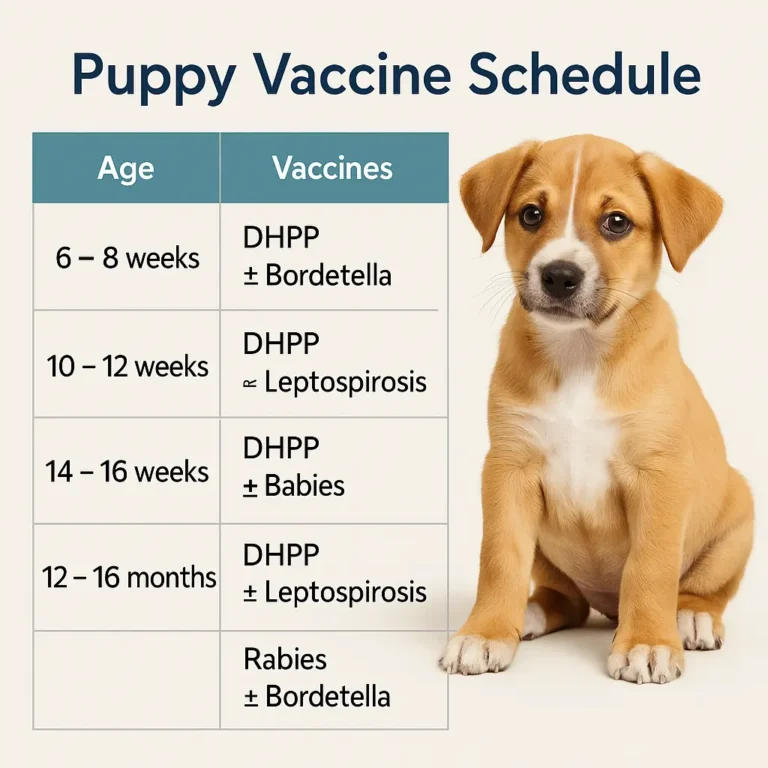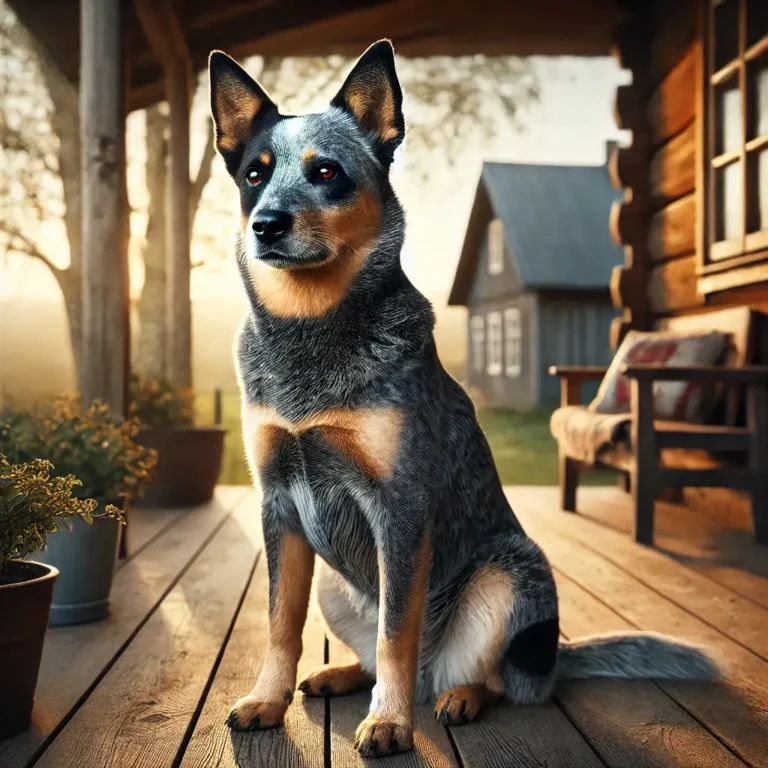The German Shepherd is indeed a large dog breed, standing between 22 to 26 inches tall and weighing between 50 to 90 pounds. Their strong, muscular build and energetic nature make them well-suited for various working roles, from police dogs to search and rescue. Their size and strength give them the ability to perform physical tasks with ease, while their agility and intelligence allow them to excel in obedience and training. As a large breed, they require ample exercise, mental stimulation, and a balanced diet to maintain optimal health and avoid obesity.
German Shepherd
The German Shepherd – A Versatile and Loyal Companion
The German Shepherd is a large, versatile, and highly intelligent breed, known for its unwavering loyalty and strong work ethic. Originating from Germany in the late 1800s, these dogs were initially bred for herding sheep and quickly gained popularity for their obedience, strength, and versatility. Today, German Shepherds serve in a variety of roles, including police and military work, search and rescue, and as service dogs.
Though they are known for their muscular build and protective instincts, they are also deeply affectionate with their families, forming strong bonds and being highly devoted companions. Their high intelligence allows them to excel in training and tasks, while their energy levels make them ideal for active families or individuals. Whether used for work or as a family pet, the German Shepherd remains one of the most trusted and reliable breeds of dogs in the world.

🐾 Puppy: A Joyful Beginning
When a German Shepherd puppy is born, it’s the start of a journey filled with boundless energy and endearing curiosity. These puppies are highly social and love being around their human family members. As they grow, they inherit their parents’ intelligence and loyalty. Training and socialization from an early age help shape a well-behaved and confident dog. Their playful nature combined with an eagerness to please makes them an ideal addition to active families. With early training and care, your German Shepherd puppy will grow into a trustworthy, loving companion.
Breed Traits
The German Shepherd is known for its intelligence, agility, loyalty, and protective nature. It is a versatile dog breed, capable of adapting to many roles, from family companion to working dog.
A German Shepherd’s lifespan typically ranges from 9 to 13 years. With proper care, including a balanced diet, regular exercise, and veterinary check-ups, they can live a long and healthy life.
The German Shepherd stands between 22 to 26 inches tall at the shoulder. Males are typically on the larger end of the spectrum, while females tend to be slightly smaller.
The average weight for a German Shepherd is between 50 to 90 pounds. Males are generally heavier, while females fall at the lower end of the weight spectrum, with some variance based on build.
German Shepherds thrive in active environments. They prefer homes with large yards or access to open spaces for play and exercise. While they can adapt to apartments, they need plenty of mental stimulation and physical exercise to stay happy.
Breed Characteristics
The German Shepherd is intelligent, obedient, and highly trainable. Their high energy levels make them ideal for activities that engage both their minds and bodies. They are naturally protective, making them excellent watchdogs.
German Shepherds are known for their strong bond with family members. They are great with children, loyal companions, and protective guardians. Their affectionate nature, combined with a high degree of intelligence, makes them loving, responsible family pets.
The German Shepherd has a muscular, athletic build. Their strong legs and large chest allow them to move quickly and efficiently. With a dense double coat and alert posture, they exude both strength and grace.
Although German Shepherds are naturally protective, they are extremely sociable and love human interaction. Early socialization is important to ensure they remain friendly and confident around other dogs, animals, and strangers.
German Shepherds are loyal, intelligent, and courageous. Their affectionate nature makes them great family companions, while their protective instincts and high energy make them excellent for active individuals or families.
🧠 Training: A Rewarding Experience
Training a German Shepherd is highly rewarding. They are one of the most intelligent dog breeds, eager to please and easy to train with the right approach. Consistency and positive reinforcement are key to success. Starting training early is essential to help them develop good habits, curb undesirable behaviors, and enhance their obedience skills. Socialization should also begin early, exposing them to a variety of environments, people, and other animals. Their intelligence, combined with their desire to learn, makes them ideal for tasks like obedience, search and rescue, or even therapy work.
German Shepherd History & Facts
The German Shepherd was initially developed in Germany in the late 19th century for herding sheep. Max von Stephanitz, a German breeder, is credited with creating the breed through the crossbreeding of various herding dogs. The goal was to create an intelligent, versatile, and loyal dog capable of performing many tasks, from herding to protecting. Since then, German Shepherds have gained global popularity for their strength, intelligence, and loyalty, excelling in roles such as police dogs, service dogs, and military dogs. Their history as working dogs continues to shape their temperament and ability to perform tasks efficiently.
The German Shepherd ranks as the third smartest dog breed, making them ideal for obedience training and learning complex tasks quickly.
Originally bred for herding, they now excel as police dogs, search and rescue, and even service animals.
German Shepherds are known for their strong loyalty to their family and will naturally protect their loved ones.
They are prone to conditions like hip dysplasia, elbow dysplasia, and degenerative myelopathy, requiring regular vet check-ups.
They need plenty of exercise and mental stimulation to stay happy, making them ideal companions for active families.
💡 German Shepherd Mix
A German Shepherd mix is often a combination of the breed’s intelligence, loyalty, and work ethic with traits from other breeds. These mixes can exhibit a wide range of temperaments, personalities, and physical appearances based on their genetic makeup. However, they typically inherit the German Shepherd’s protective instincts and high energy levels, making them excellent top guard dogs and family companions. Just like purebred German Shepherds, these mixes need consistent training, early socialization, and plenty of exercises to thrive. Many German Shepherd mixes excel in working roles or as loving household pets.
🍽️ Food: A Balanced Diet for Your German Shepherd
A balanced diet is crucial for your German Shepherd to maintain their active lifestyle and overall health. They need high-quality dog food rich in protein, fats, and essential vitamins to keep their muscles strong and their coat shiny. As a large and energetic breed, a German Shepherd benefits from meals that are tailored to their size, age, and activity level. Omega-3 and Omega-6 fatty acids contribute to joint health and improve coat quality. Avoid overfeeding, as German Shepherds are prone to hip dysplasia and other joint issues. A healthy diet is key to ensuring a long and happy life.
🐾 Breed Behaviour: Understanding the German Shepherd's Temperament
The German Shepherd is an intelligent, loyal, and large protective dog that thrives with proper training and socialization. They are eager to learn, active, and affectionate, making them great family pets and workers. Their protective instincts ensure they guard their home and loved ones.
Alertness
German Shepherds are known for their keen alertness. Their sharp senses make them excellent watchdogs. They can detect changes in their environment and will react quickly to unfamiliar sounds or situations, ensuring they protect their home and family.
Protectiveness
A German Shepherd has a natural inclination to protect their family and home. While they are friendly and affectionate with their owners, their protective instincts make them vigilant against perceived threats. Early socialization helps them distinguish between friendly visitors and potential intruders.
Prey drive
German Shepherds have a moderate prey drive. They may chase small animals like squirrels or rabbits, especially if not properly trained or socialized. Regular exercise, play, and obedience training can help channel their energy and instincts in productive ways.
Aggressiveness
German Shepherds are not naturally aggressive but can display aggressive behaviors if they feel threatened or untrained. Proper training, socialization, and leadership from their owners ensure they are confident, balanced, and non-aggressive in their interactions with others.
Barking level
German Shepherds are generally moderate barkers, using their voices to alert their family to strangers or danger. However, they tend not to bark excessively unless they feel it’s necessary.
Trainability
German Shepherds are incredibly trainable due to their intelligence and eagerness to please. They excel in obedience training and are capable of learning complex commands and tasks. Positive reinforcement and consistency are key to success.
Mental stimulation needs
A German Shepherd needs plenty of mental stimulation to stay happy and healthy. Interactive toys, puzzle games, and engaging activities, like obedience training and agility courses, can help prevent boredom and promote mental sharpness.
Intelligence
German Shepherds are widely regarded as one of the most intelligent dog breeds, ranking third for obedience and working intelligence. Their ability to learn commands quickly and problem-solve makes them highly capable in various roles, including police work and service dog duties.
🦴 German Shepherd Mix Breed: The Versatile Hybrid
The German Shepherd mix is a blend of the loyal, intelligent, and protective nature of the German Shepherd with traits from other breeds. Mixed breeds can vary widely in size, temperament, and appearance, but most inherit the German Shepherd’s work ethic, high energy, and affectionate nature. Early socialization and consistent training are important to ensure they grow into well-behaved companions. These dogs are often great family pets and can excel in a variety of roles, from service dogs to agility athletes.
💇 Grooming: Keeping Your German Shepherd Looking Great
The German Shepherd has a dense double coat that requires regular grooming to keep it looking healthy. Brushing 2-3 times a week helps prevent mats, removes dead hair, and reduces shedding. Regular grooming also helps maintain their skin health and promotes circulation. German Shepherds shed more heavily during seasonal changes, so be prepared for more frequent brushing during those times. Their ears should be checked regularly for wax buildup, and nails need trimming every few weeks. Bathing should be done as needed, using a gentle dog shampoo.
🦴 Physical Attributes of a German Shepherd
The German Shepherd is a large, athletic dog with a muscular build. Their alert eyes, erect ears, and strong body give them a powerful yet graceful appearance. With a broad chest and sturdy legs, they are built for endurance and agility. Their striking appearance is coupled with an energetic and loyal personality.
Breed Size
German Shepherds are large dogs, standing between 22 to 26 inches tall and weighing between 50 to 90 pounds. Their size makes them well-suited for various working roles, from law enforcement to search and rescue.
Colours
German Shepherds come in a variety of colours, including black, tan, ** sable**, and red. Their coat is often a combination of dark and light shades, with the classic black and tan being the most common. Some German Shepherds may even be all black or all white.
Coat
The German Shepherd's coat is double-layered, featuring a thick, dense undercoat and a longer, coarser outer coat. This coat provides protection in various weather conditions, keeping them warm in the winter and cool in the summer. Regular grooming is essential to manage shedding.
Drooling
German Shepherds are moderate droolers, with most drooling occurring after meals or when they are particularly excited. While not as drooly as some breeds, they may leave a bit of saliva around when anticipating food or play.
Snoring
German Shepherds may snore occasionally, especially if they are in a deep sleep. Larger breeds like the German Shepherd may be more prone to snoring due to their larger airways, but it’s generally not a frequent issue.
Exercise Needs
German Shepherds require at least 1-2 hours of exercise each day to stay healthy and happy. Activities like running, walking, and playing fetch are excellent ways to burn off their high energy levels. Mental stimulation through tasks like obedience training is also essential for their well-being.
Grooming Needs
German Shepherds need regular grooming due to their thick double coat. Brush them 2-3 times a week to remove loose hair and prevent mats. They also need ear cleaning, nail trimming, and occasional bathing to maintain overall hygiene. Their shedding increases during seasonal changes, requiring more frequent grooming.
Aggressiveness
German Shepherds are not naturally aggressive, but they are protective of their family and home. With proper socialization and training, they become well-adjusted dogs who are friendly and loyal but also serve as reliable protectors when necessary.
💊 Health: How Healthy Are German Shepherds?
German Shepherds are generally healthy dogs, but like all breeds, they can be prone to certain conditions. These include hip dysplasia, elbow dysplasia, and degenerative myelopathy. Regular vet visits and a balanced diet can help mitigate these risks. They are also prone to bloat, a condition that affects their stomach, so feeding them smaller meals and keeping them calm after eating is crucial. With proper care, a German Shepherd can live a healthy, active life for 9 to 13 years.
🐕 Large Dog Breed: Is the German Shepherd a Large-Sized Breed?
German Shepherds faq
Are German Shepherds good family pets?
Yes, German Shepherds are affectionate and loyal dogs that make great family pets when well-trained. They are good with children and other pets when properly socialized.
Do German Shepherds shed a lot?
Yes, German Shepherds shed heavily, particularly during seasonal changes. Regular grooming and brushing help manage their shedding and keep their coat healthy.
Are German Shepherds easy to train?
German Shepherds are intelligent and highly trainable. They excel in obedience and can be trained for various tasks, from service work to protection.
How much exercise do German Shepherds need?
German Shepherds require at least 1-2 hours of exercise daily to stay healthy. Activities like fetch and long walks will help expend their energy.
Do German Shepherds get along with other dogs?
With proper socialization, German Shepherds are generally friendly toward other dogs, though they may show territorial behavior. Early training is key for a peaceful household.
How often should German Shepherds be bathed?
German Shepherds should only be bathed when necessary, about every 2-3 months. Frequent baths can strip their skin of natural oils, leading to dryness.
Are German Shepherds prone to health problems?
Yes, German Shepherds are prone to conditions like hip dysplasia, elbow dysplasia, and degenerative myelopathy. Regular veterinary care helps address these issues early.
Do German Shepherds bark a lot?
German Shepherds bark to alert their owners of danger or when they are excited. They are generally moderate barkers, though excessive barking can be trained out of them.
🐾 Dog Life: A Day in the Life of a German Shepherd
A typical day for a German Shepherd includes morning walks, playtime, and mental exercises like obedience training. They enjoy active tasks, such as running or fetching. After play, they enjoy lounging with their family members. Their affectionate nature means they will always seek companionship. German Shepherds thrive on attention and activity, so they need a balanced daily routine that includes both physical and mental engagement.
The German Shepherd is a versatile, intelligent, and loyal breed that thrives in various roles, from police dogs to family companions. They are highly trainable and make excellent watchdogs. Their protective nature, combined with their strong work ethic and affectionate demeanor, makes them ideal for active families or individuals looking for a loyal partner. With proper care, training, and socialization, the German Shepherd will provide years of love and protection. They are an excellent choice for anyone ready for a devoted and active companion. Find out ‘what dog are you‘ by taking our fun and fast quiz!



























